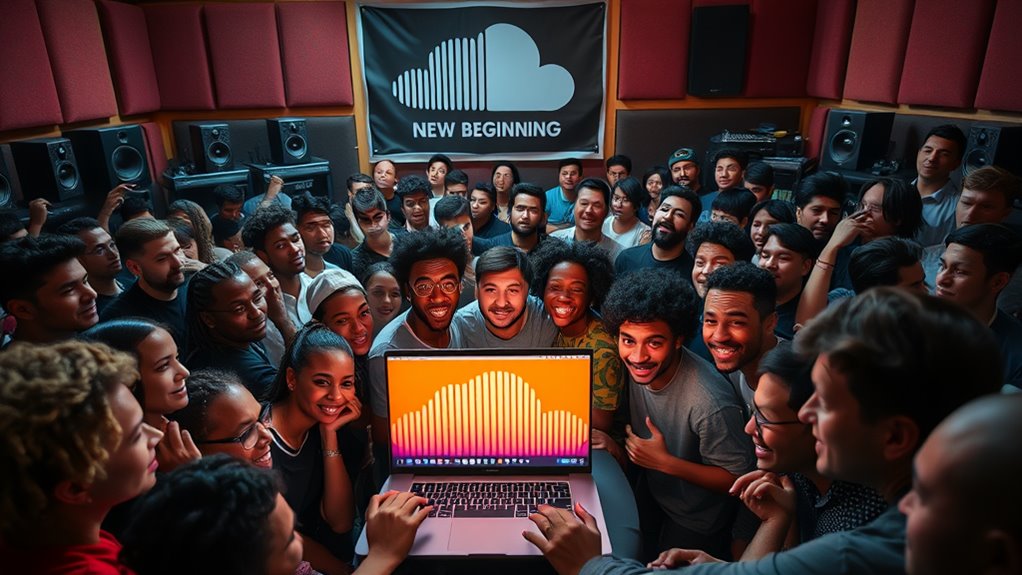SoundCloud has recently reversed its AI policy that sparked significant backlash among creators. Initially, the platform allowed for the potential use of user-generated content in AI training, which raised concerns about intellectual property rights. In response, CEO Eliah Seton issued a clarifying letter, promising not to use user content for generative AI. This decision raises questions about the future relationship between creative industries and AI technology. What implications does this shift hold for both artists and platforms?
Key Takeaways
- SoundCloud reversed its controversial AI policy after significant backlash from users concerned about their intellectual property rights.
- The initial policy allowed AI training on user content, causing widespread fear among creators about exploitation.
- CEO Eliah Seton admitted the original communication was unclear and outlined intentions for internal AI applications only.
- The revised policy explicitly states that user content will not be used for generative AI training, ensuring user protections.
- This incident underscores the need for ethical AI guidelines and clear communication in the creative industry.
SoundCloud has reversed its controversial AI policy following significant backlash from users concerned about the potential misuse of their content. Earlier this year, the platform updated its usage policies, introducing wording that many interpreted as providing legal cover for training artificial intelligence models using user-generated content. This ambiguity sparked widespread concern and frustration among creators, who feared that their intellectual property could be exploited without their consent.
In response to the uproar, SoundCloud’s CEO, Eliah Seton, published an open letter addressing the community’s concerns. He acknowledged that the initial communication about the policy changes was overly broad and unclear, emphasizing that the updates were intended solely for internal AI applications, such as enhancing recommendation algorithms and improving fraud prevention tools. Seton admitted that the company failed to effectively convey its intentions, which contributed to the confusion and distrust among users.
Following this backlash, SoundCloud took decisive steps to revise its terms. The new policy explicitly states that user content will not be used for generative AI training, offering assurances that the platform will not replicate users’ voices, music, or likenesses. This clarification aims to reinforce transparency in future policy updates and to rebuild the trust that was undermined during the controversy.
SoundCloud’s revised policy ensures user content won’t be used for AI training, aiming to rebuild trust and enhance transparency.
The public reaction highlighted underlying fears regarding the ethics of AI and copyright issues in the creative industry. Users voiced their concerns about the implications of AI on their work, prompting SoundCloud to reconsider its approach. The incident underscores the importance of clear communication during policy changes and reflects a growing discourse on the ethical use of AI in media and entertainment.
SoundCloud’s experience is indicative of broader challenges faced by various companies maneuvering AI integration while protecting user rights. Industry experts continue to discuss these advancements and their implications, emphasizing the need for ethical guidelines to govern AI’s role in creative fields.
Conclusion
In the wake of SoundCloud’s policy reversal, the platform stands at a crossroads, symbolizing a delicate dance between innovation and respect for creators’ rights. By prioritizing transparency and safeguarding user-generated content, SoundCloud rekindles the trust that flickered amid uncertainty. This decision serves as a beacon, illuminating the path for ethical AI integration in creative spaces, reminding the industry that the voices of creators must remain the heart of the digital landscape, not mere data points for algorithms.
